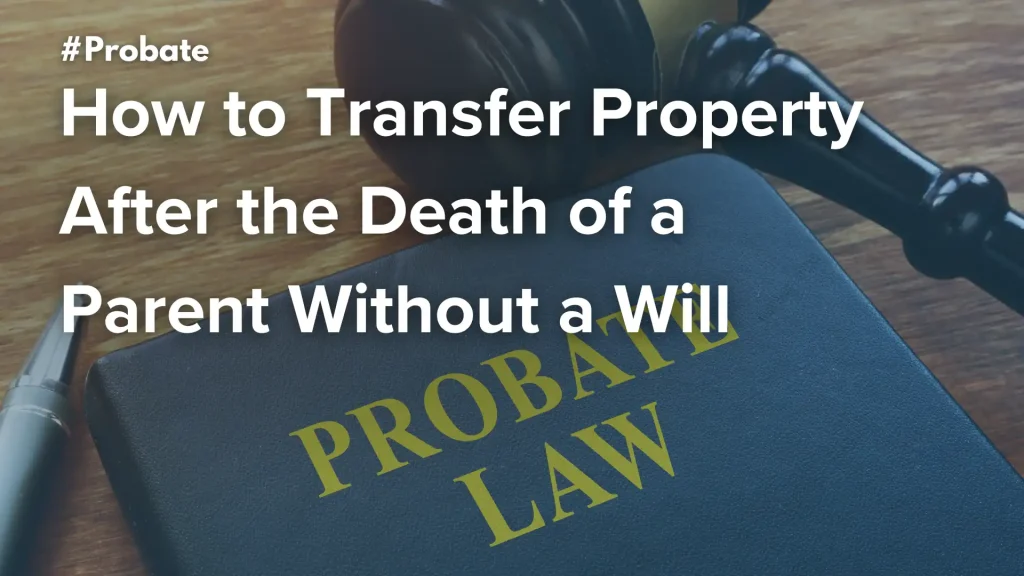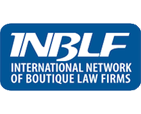
When a parent dies, completing the transfer of property after death without a will can be a challenging process. Working with a trusted Chicago probate litigation lawyer can help surviving family members better understand what lies ahead.
Confirm the Assets and Property Ownership
Confirming assets is an essential first step when handling an estate without a will. Begin by identifying and listing all assets, including bank accounts, property, vehicles, and personal items. This inventory helps ensure proper asset distribution under Illinois intestacy laws and assists in identifying debts or taxes that may affect the estate.
Determine the Type of Probate Process Needed
Without a will, property transfer typically happens through the probate process. The probate court’s role is to oversee the transfer of property after death without a will, which includes identifying and distributing the deceased’s assets. There are two types of probate processes in Illinois:
- Formal Probate – Formal probate applies if the estate has a significant value, especially if real estate is involved. It requires court proceedings to ensure everything is distributed according to state law.
- Small Estate Affidavit – This more straightforward process may apply if the estate’s value is under a certain amount and doesn’t include significant real estate.
Formal probate is more complex and involves more steps than the small estate affidavit process. Your probate attorney will be able to determine which path is appropriate for your situation.
Appoint a Personal Representative
In Illinois, a personal representative or administrator must oversee the estate. This person, often a family member or surviving spouse, is responsible for managing the estate, including paying off debts and taxes and ensuring the transfer of property after death without a will.
When a parent dies without a will, the court typically appoints a personal representative. This person gathers all the necessary paperwork to present in court and starts managing the estate.
Collect and Submit Required Documents
After the appointment of the representative, they must collect specific documents and submit them to the probate court to initiate the process. These documents include:
- Copy of the death certificate to confirm the parent’s passing
- Proof of ownership documents, such as real estate deeds or titles, bank account statements, and vehicle titles
- Community property documents, if applicable, which show ownership rights, especially if the deceased person was married
If you’re unsure which documents are necessary, your probate attorney can provide clarity. They can also help you gather and submit the required items.
Complete the Probate Process
After you’ve collected and submitted all the necessary documents, the court will oversee the settling of the estate. The probate process includes identifying the parent’s debts and paying those off before distributing the remaining assets. Any remaining real estate, personal property, or financial assets will then be allocated according to state laws, with priority often given to the surviving spouse and children.
If there is no surviving spouse, Illinois probate law decides how to divide the estate among the remaining family members. This can be a lengthy process, especially if disputes arise. Having an attorney on your side can help maintain order and fairness during distribution.
Transfer Title of Property and Real Estate
Following the payment of debts and the distribution of assets, the court will grant permission to transfer the title of the real estate or other property. The representative will work with the county records office to officially change the name on property deeds and titles.
For bank accounts, the representative may need to provide a court order to access and transfer funds. Each type of asset, whether a bank account, real estate, or personal property, may have its own set of requirements. A certified copy of the court order or other paperwork is usually necessary for each transfer.
Complete Any Final Court Proceedings
The last step involves wrapping up any remaining court proceedings. The personal representative will submit a final report to the court detailing how the estate was managed and ensuring everything was handled properly. Once approved, the court will formally close the probate case, and the transfer of property after death without a will is officially complete.
Avoid Probate with an Estate Planning Attorney
 Having an estate plan in place can make the process much easier and less stressful for loved ones by avoiding probate. If you are facing probate issues or need assistance with estate planning, the team at Peck Ritchey, LLC can help you better understand your rights and guide you through the process. Our experienced Chicago probate litigation lawyers are here to offer trusted advice and support. Contact us today by calling (312) 201-0900 to get started with a consultation.
Having an estate plan in place can make the process much easier and less stressful for loved ones by avoiding probate. If you are facing probate issues or need assistance with estate planning, the team at Peck Ritchey, LLC can help you better understand your rights and guide you through the process. Our experienced Chicago probate litigation lawyers are here to offer trusted advice and support. Contact us today by calling (312) 201-0900 to get started with a consultation.
Related Posts:
Understanding The Most Common Problems That Probate Attorneys In Illinois Can Help With
Our Probate Lawyers In Chicago Can Help You Avoid Common Executors’ Mistakes
Does Your Family Need Probate Attorneys In Chicago?
Estate Arguments: When Should You Contact a Probate Attorney?














